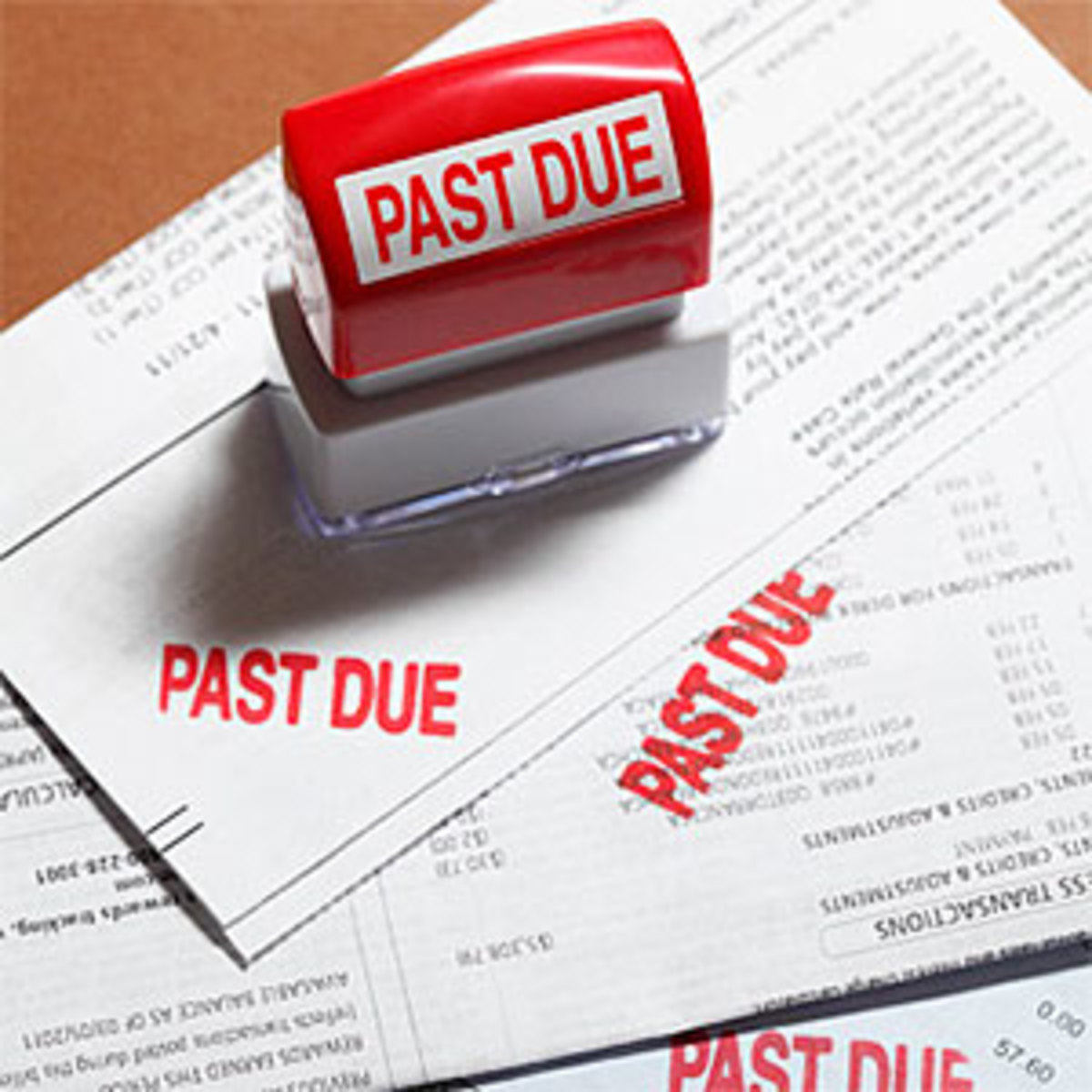How to Deal With a Call from a Debt Collector

Just about everyone over the age of twenty-five has gotten a phone call at some point in their life from a collection agency attempting to collect an overdue or delinquent debt. If you're fortunate enough to have never received such a call, this is typically what to expect when and if it ever does happen to you: it starts with a ringing phone and a number on your caller ID you don't recognize. If you decide not to answer the call, you'll get the same ringing phone and unrecognizable number on your caller ID several hours later. If you decide to ignore it again, the process will repeat itself over and over again until you do eventually answer the call. Once you've picked up the phone and said hello, you'll hear a caller take their best shot at correctly pronouncing your first and last name, before asking you to confirm your identity. You'll know at this point that this phone call is probably not going to be the highlight of your day.
Once you've confirmed your identity, the caller will tell you that the call is being made in an effort to collect a debt, all information you provide will be used for that purpose, and the call can be monitored or recorded. This is typically the part where your adrenaline will start pumping. You'll want to respond by saying things like: I don't have any bad debts. You must have the wrong person. I'm not paying you any money. Don't call me here again! Instead, out of curiosity you'll probably respond by asking him or her what they're talking about. Once they've reminded you of that credit card you maxed out years ago and stopped making payments on, that modest student loan you took out after high school that you later decided wasn't worth paying back, or that creditor last decade who wasn't high enough on your financial priority list to reduce your checking account balance over, you'll realize the call is no practical joke, scheme, or company mistake. Rather, it's a legitimate phone call that resulted from an inability by you to take responsibility over a valid debt that at some point in your life you knowingly and willingly incurred.
This is the part where most people are tempted to quote Johnny Paycheck's most famous lyrics, replacing the word "job" with "debt" before hanging up the phone. Why? Because nobody wants to believe they have a bad debt. People take pride in the ability to stay on top of their financial lives. They think bad debts only happen to the most blatantly irresponsible individuals of the nation. What most people don't seem to realize is that with close to 7,000 collection agencies in the United States alone, there's still more bad debt in this country than can ever be collected. A clear indication that bad debts can happen to just about everyone, regardless of wealth, or financial responsibility. Still nobody wants to initially accept that it's happened to them. This is the primary reason why debt collectors get hung up on more often than any other professional: they undermine the flawless perceptions people oftentimes have of themselves by reminding them of an imperfection in their long history of success. As such, people view them as unwanted intruders on their livelihood, and threats to their enjoyment of life.
But anyone who's been contacted by a debt collector knows that ignoring them never makes them go away, and properly instructing them to stop calling certainly doesn't make the debt they tried to collect go away. Bad debts aren't like colds, or roadwork: they don't just vanish over time. Even if you successfully stop a debt collector from contacting you, there are far worse things that can happen if you decide to let a bad debt you know about remain unpaid. Bad debts increase in balance over time by way of lawful penalties and interest. Companies can also obtain judgments against delinquent debtors, from which wage and property garnishments can thereafter be pursued. In addition, bad debts obstruct you from building up good credit to secure your financial future. No matter how many creditors you may remain responsible for, one bad debt is oftentimes all it takes to prevent a credit score worthy of obtaining loans, financing, and occasionally even employment, as many employers currently review applicant credit scores pursuant to routine background checks. With all that being said, what's the best way to handle a phone call from a debt collector?
Pay the Debt
The easiest way to get a debt collector off your back is to simply pay the debt they're calling you about. Sure, forking out cash you weren't expecting to spend before receiving the phone call is a tough pill to swallow, but you'll benefit from it more than anyone else will. On top of putting an end to being tracked down and barraged with phone calls, at home and at work, by one collection agency after another, it'll open the door to the possibility of regaining good credit, and abolish the potential for future lawsuits and garnishments, and for the debt to continue increasing in value. In general, taking care of it immediately will prevent it from ever haunting you again in the future. If you can't pay the full balance right away, ask the collector what other possibilities may be acceptable. While collectors will typically tell you the balance is immediately due in full at the start of the phone call, they're trained to demand the least desirable option before suggesting other more budget-friendly possibilities that may be equally acceptable to their clients. If they know you're committed to paying your debt, they're bound to work with you to discover a plan convenient with your financial budget. Find out what these possibilities are, and commit yourself to a plan that you can afford without taking food out of your cupboards.
If you can't pay anything right away, tell them when you can make a payment, and how much you expect that payment will be. Provide a firm date at which an acceptable payment can be made, and figure out a way thereafter to live up to your commitment. If nothing else, it should stop them from contacting you temporarily while you begin the task of taking responsibility over your financial future. Remember, you have the ability to be responsible for every debt you incur. If you don't think you'll be able to pay off a debt, don't incur it. Debt collectors are like the police officers of the economy. If you're a law-abiding citizen, police officers probably don't bother you. The same can be said about debt collectors when you're financially responsible. Taking out a loan you don't believe you can repay is to the economy what crime is to public welfare. If you're like the millions of Americans who dislike debt collectors, take your part in seeing to it that there's less need for such positions by being financially responsible. It'll benefit the economy and, more importantly, it'll benefit your life.








